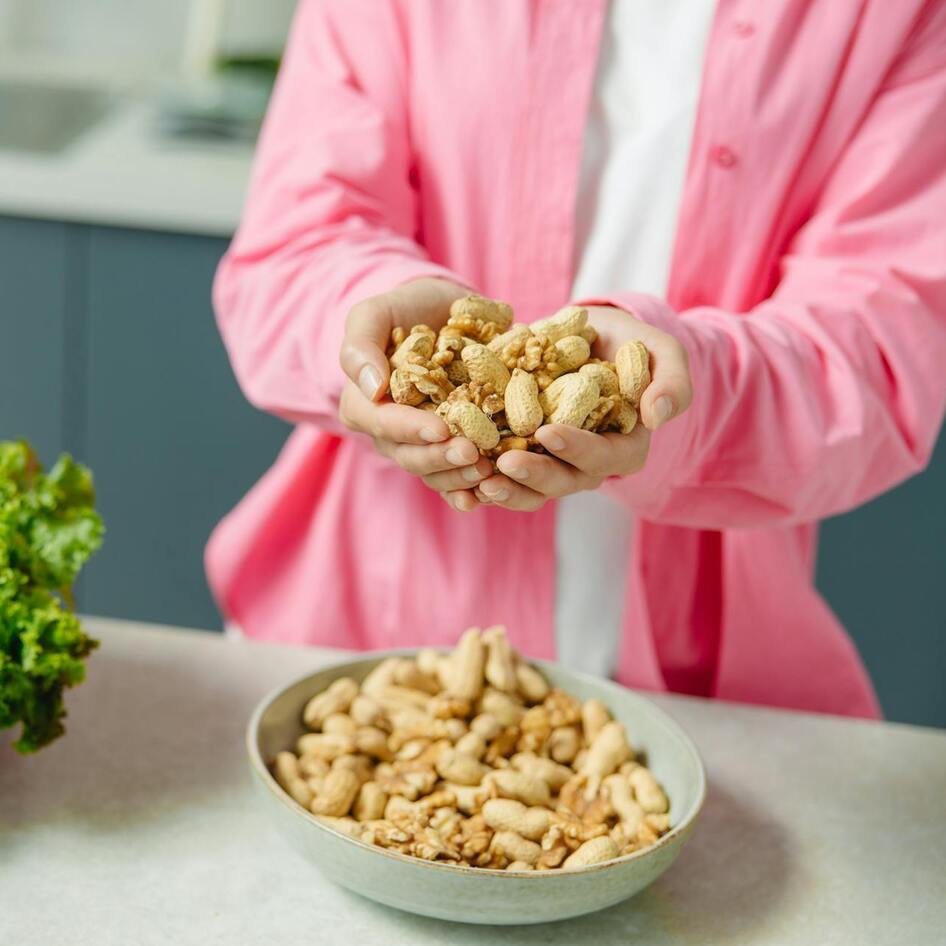Up until recently, humans have thought of aging as a process that gradually occurs from year to year. However, new research has suggested that aging might not be as linear as we think and can occur in significant bursts, particularly around the ages of 44 and 60.
According to the Stanford University study—which was limited in sample size to 108 individuals aged 25 to 75 in California—these “bursts” are marked by declines in metabolism, immune function, kidney health, and muscle mass. physical activity, and cognitive engagement, play a pivotal role in determining how well people age during these critical periods.

Understanding and addressing these shifts, particularly through diet, may help individuals mitigate some of the effects of aging during these periods, explains Tanner Gish, Certified Dementia Practitioner and Director of Operations at Loving Homecare Inc., focusing on holistic care including nutrition-based interventions for aging populations.
“In the 40s and 50s, metabolic and immune function can decline due to hormonal changes, oxidative stress, and inflammation,” Gish tells VegNews. “A plant-based diet, rich in antioxidants, fiber, and anti-inflammatory compounds, can help counteract these effects.”
The science behind the “age bursts”
According to the Stanford study, rapid changes in thousands of molecules were observed at ages 44 and 60. The research followed participants, tracking more than 135,000 distinct molecules and microbes over several years.
“We’re not just changing gradually over time; there are some really dramatic changes… in the mid-40s, as is the early 60s,” Michael Snyder, PhD, professor of genetics, and lead author of the study said in a statement. These changes were particularly evident in molecules related to lipid and carbohydrate metabolism, kidney function, immune regulation, and cardiovascular disease.
 Sam Williams/Unsplash
Sam Williams/Unsplash
The study found that while some shifts were expected, such as those linked to menopause or metabolic slowdowns, others were surprising. Both men and women showed significant shifts in alcohol, caffeine, and lipid metabolism in their mid-40s, as well as changes in muscle and skin health.
In their 60s, participants experienced declines in carbohydrate metabolism and immune function, with markers for cardiovascular disease becoming more prominent.
How eating plants can help mitigate “age bursts”
As these rapid biological changes take place, diet becomes a critical factor in mitigating the effects. Specifically, Gish notes that focusing on cruciferous vegetables, whole grains, nuts, and seeds is key.
 Marisa Morton/Unsplash
Marisa Morton/Unsplash
BECOME A VEGNEWS VIP: Get exclusive product deals, freebies, and perks galore!
“Cruciferous vegetables like broccoli, kale, and Brussels sprouts are rich in sulforaphane, which can reduce oxidative stress and boost immune function,” Gish says, a statement supported by research published in the Journal of Nutritional Biochemistry supports the role of sulforaphane in lowering oxidative damage, a key factor in the aging process.
Whole grains, such as quinoa and barley, can also help manage metabolic shifts by providing complex carbohydrates that stabilize blood sugar levels. “Gut health is key to both immune and metabolic health,” Gish emphasizes, citing research from the Nutrients journal, which shows how fiber-rich whole grains support the gut microbiome, playing a significant role in maintaining overall health during midlife.
Omega-3 fatty acids, found in flaxseeds and walnuts, are also essential for reducing inflammation and supporting brain and heart health.
“These fatty acids are critical in combating the chronic inflammation that drives age-related diseases,” Gish says.
These plant-based sources offer protective benefits as oxidative stress and inflammation rise in your 40s.
Supporting kidney and carbohydrate metabolism around age 60
In the 60s, kidney function and carbohydrate metabolism decline, marking another burst of aging, as found in the Stanford study. Gish points out that plant-based proteins can provide a safer alternative to animal proteins, which may strain the kidneys.
 Rdne/Pexels
Rdne/Pexels
“Legumes like lentils and chickpeas offer plant-based protein without the harmful effects on the kidneys,” Gish says. A 2020 study in the Journal of Renal Nutrition further supports this, indicating that plant-based diets may reduce the risk of chronic kidney disease progression.
For those concerned with managing blood sugar levels as insulin sensitivity decreases, low-glycemic index foods such as sweet potatoes, oats, and non-starchy vegetables can help maintain stable blood glucose.
“Managing carbohydrates through low-glycemic plant-based options is key in this age group, as it can prevent dangerous blood sugar spikes,” Gish says.
In addition, antioxidant-rich berries such as blueberries and cranberries offer support for kidney health. “Berries have powerful anti-inflammatory properties that help reduce oxidative stress on the kidneys,” Gish explains, a claim also backed by research published in Phytotherapy Research.
Managing muscle loss and cholesterol as you age
One of the significant challenges for those entering their 60s is sarcopenia, or muscle loss, as well as managing cholesterol levels. Gish points out that plant-based proteins, particularly from sources such as tofu, tempeh, and legumes, provide essential amino acids that support muscle maintenance.
 Adobe Stock
Adobe Stock
“A plant-based diet can deliver the necessary protein to maintain muscle mass, even as people age,” Gish says, referencing a 2021 study in the Journal of Cachexia, Sarcopenia and Muscle, which showed that adequate protein intake from plant sources can help individuals retain muscle mass in later life.
Additionally, cholesterol management becomes increasingly important as the risk of cardiovascular disease rises. Gish recommends incorporating soluble fiber from oats, beans, and lentils, as these foods help reduce LDL cholesterol according to a growing body of research.
“Soluble fiber has been shown to lower LDL cholesterol, making it a key component of a heart-healthy plant-based diet,” Gish says.
Healthy fats from sources like avocados and nuts can also help raise HDL cholesterol, further supporting cardiovascular health and helping to keep those age bursts in check.
For more plant-based stories like this, read:
JUMP TO ... Latest News | Recipes | Guides | Health | Subscribe









